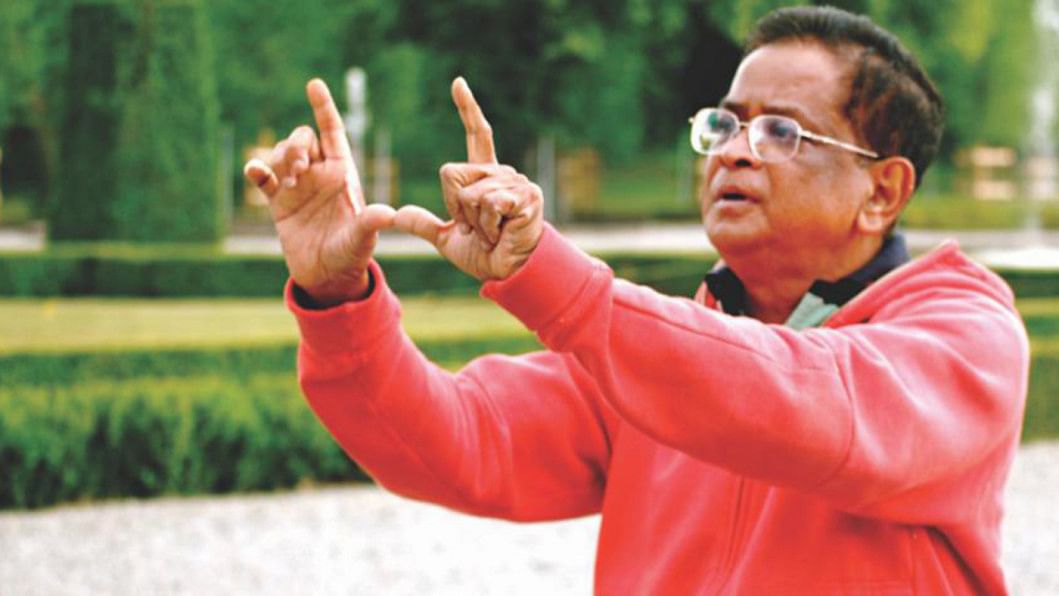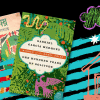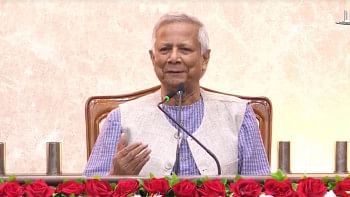In remembrance of Humayun Ahmed

Humayun Ahmed is the most celebrated writer of contemporary time and one of the best storytellers in the history of Bangla literature.
He was born on November 13, 1948, at Mohongonj of Netrokona in Bangladesh and today would have been the 68th birthday of this great writer and director.
His writings have an enchanting charm over Bangalees, especially the youths. Since the 90's he has been persuading the young generation like the 'Pied Piper of Hamelin'. His works have been drawing readers for more than two decades. Fiction or non-fiction, he always had a story to tell. With unconventional beginnings, endings and characterizations, his works have an unusual spell-like quality. We become Himu, Misir Ali, Shuvra, Rupa, Baker bhai while reading his work.
We can find ourselves in Humayun's portrayal of characters and even our near and dear ones inside his stories. There is hardly ever anything like absolutely good or bad or evil or absolutely true or false in his creations which make them more real and connect us with them even better, because that is exactly how real life is. Everything's relative, whether Himu's romantic indifference towards Rupa or Misir Ali's search for truth, which makes them humane, yet not cliché, and they become a part of our lives.
Humayun Ahmed presented each of the characters of his novels, stories, even non-fictions and films in such ways that not only the lead characters but also the second and third leads, and even the ones with the tiniest bit of role in the creation will tell you a different story. Like the rickshaw puller in Aguner Poroshmoni, or the help and the shopkeeper.
He never tried to hamper with the reality. He always wanted to show it as it is. This is what makes him unconventional. Because, unlike most of the authors, he didn't portray life in a sugar coated way for his readers or audience in his works. He presented life in its real form while still giving us hope. The contradiction between human need or want and the reality of life is well presented in his creations, constantly breaking our hearts and bringing tears to our eyes. We long for a happy ending but we hardly ever get what we desire. But still, at least a subtle possibility, a ray of hope is hinted. It's almost like Camus' Absurdism. We are constantly made to face the worst possible realities of life but never can we lose faith in humanity. We are made to revolt the meaningless toils of life knowing the low possibility of anything better. In Jochhna o Jananir Golpo, Ahmed portrayed two endings- one where the freedom fighter returns to his newly-wed beloved wife, and another, where he doesn't. After 400 or more pages of rooting over he gives us what we wanted, desired, expected and hoped for but he also lets us know what actually happened in thousands of cases like that in 1971, in the history of Bangladesh.
Humayun often portrayed magical or unreal elements as a natural part in an otherwise realistic or mundane environment .Things often work out magically in his works. Even Misir Ali fails to explain certain things. At first, this seems unrealistic .But if you give this a second thought you will understand what Ahmed actually wants to tell us. How often does it happen that we don't find concrete explanations for something in life? The answer is every day! Just because something's been happening since the beginning of life doesn't mean something is ordinary and can be explained logically. We get used to most of these things, that's why they don't bother us. Humayun points toward these magical elements of life.
This writing style of him is often characterised as 'magic realism'. The term is broadly descriptive rather than critically rigorous. Matthew Strecher defines magic realism as "what happens when a highly detailed, realistic setting is invaded by something too strange to believe."
In one of Ahmed's great pieces "Debi", Ranu becomes someone/something unexplainable to save Neelu. Later, Misir Ali discovers Neelu has become exactly how Ranu used to look .Ranu mysteriously died the night of Neelu's kidnapping. Humayun's presentation and language prevent us from the feeling that what we are reading is a hoax. And if we go deep enough into our thoughts we realize unexplainable things happen every day around us! We can even relate to the characters.
This Bangladeshi author, dramatist, screenwriter and film director reached the peak of his fame with the publication of his novel Nondito Noroke (In Blissful Hell) in 1972, which remains one of his most famous works, winning admiration from literary critics including Dr Ahmed Sarif. He wrote over 200 fiction and non-fiction books, all of which were bestsellers in Bangladesh. Humayun's contribution single-handedly shifted the capital of Bengali literature from Kolkata to Dhaka without any war or revolution. Sunil Gangopadhyay, another influential Bengali author described him as the most popular writer of Bangla language. In fact, a huge part of today's young readers claims taking up reading for pleasure only because of Humayun Ahmed. And some of them actually read only his books.
Humayun Ahmed left us on July 19 in 2012. Uncountable tears were shed that day. Four years later we still have not been accustomed to not waiting for the publication of his new books in Ekushey Boimela every year. He became our mentor, our friend, our relative through his writings. His death was not only a great loss for Bangla literature, but it was a great personal loss too.
Ayna Ghor, Ayomoy, Badol Diner Prothom Kodom Phul, Ochinpur, Brihonnola, Daruchini Dwip, Debi, Jochhna O Jononyr Golpo, Nondito Noroke, Ei Sob Dinratri, Moyurakkhi, Misir Alir Omimangshito Rohosyo, Shonkhonil Karagar are some of the personal favourites written by Humayun Ahmed. His 2012 film Ghetuputra Kamola was selected as the Bangladeshi entry for the Best Foreign Language Film at the 85th Academy Awards, but it did not make the final shortlist. He won several prestigious awards for his contribution to Bangla literature in his life time. Among them, Lekhak Shibir Prize (1973), Jainul Abedin Gold Medal, Bangla Academy Award (1981), Michael Madhusudan Medal (1987), Ekushey Padak (1994), Sheltech Award (2007) are most important. He also won National Film Awards (Bangladesh) in different categories over the years of 1993, 1994 and 2012.
We remember him with great reverence on his birthday and wish him eternal peace in the world of no return!

 For all latest news, follow The Daily Star's Google News channel.
For all latest news, follow The Daily Star's Google News channel. 








Comments